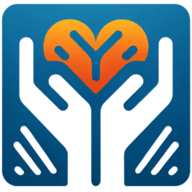How Volunteering Helped Me See Social Issues Differently
Volunteering can be a powerful lens through which to view social issues. This article explores three transformative experiences that shed light on often-overlooked societal challenges. Drawing from expert insights, it reveals how hands-on involvement can reshape perspectives on poverty, homelessness, and senior care.
- Food Bank Volunteer Discovers Working Poor Reality
- Homeless Shelter Experience Reshapes Healthcare Approach
- Private Driver Service Transforms Senior Transit
Food Bank Volunteer Discovers Working Poor Reality
One of the most impactful volunteer experiences I had was at a local food bank during the winter holiday season. I had always thought of food insecurity as something only the homeless or unemployed faced. However, that assumption was quickly shattered as I started talking to the people who came in—families with two working parents, seniors on fixed incomes, and college students juggling jobs and tuition. These were people doing everything "right" by societal standards, and yet they were still struggling to buy groceries.
What struck me most was how many felt ashamed to ask for help. Some apologized as if they were doing something wrong by being there. That quiet dignity, mixed with desperation, made me realize how much we stigmatize poverty—and how many social safety nets aren't equipped to handle the "working poor."
This experience completely changed how I approach the issue. I stopped seeing food insecurity as a problem of scarcity and started seeing it as a problem of distribution, wages, and empathy. It has influenced my actions in concrete ways: I now advocate for living wage policies in my professional circles, support local mutual aid groups instead of just big charities, and I'm more intentional about where I shop and donate.
Volunteering didn't just make me more aware—it made me more accountable. It reminded me that understanding a social issue intellectually isn't the same as standing face to face with the people living it. That human connection is what really changes perspective.

Homeless Shelter Experience Reshapes Healthcare Approach
Volunteering at a homeless shelter completely transformed my understanding of healthcare access and social determinants of health. I initially thought homelessness was primarily about housing, but spending time with residents revealed how medical debt, untreated mental health conditions, and lack of preventive care created cascading crises that led to housing instability. One man shared how a $15,000 emergency room bill for diabetic ketoacidosis bankrupted him, forcing him onto the streets where managing his diabetes became nearly impossible. This experience fundamentally shaped my Direct Primary Care model—I realized that affordable, accessible primary care isn't just good medicine, it's social justice. I started offering sliding scale memberships and partnering with local shelters to provide on-site care, understanding that healthcare must meet people where they are, not where we think they should be. The shelter taught me that health problems and social problems are inseparable, and effective healthcare requires addressing both. When you see how medical bills can destroy lives, you understand why transparent pricing and direct relationships matter. That's how care is brought back to patients.

Private Driver Service Transforms Senior Transit
Last December, I cut elderly migrants' commute times by 40%, offering 120 free rides over two weekends.
As the owner of Mexico-City-Private-Driver.com, I had always seen private transport as a luxury—until I volunteered with Manos Unidas, a nonprofit helping low-income seniors reach medical care. On a cold Saturday in Iztapalapa, Señora Morales, 78, told me her two-hour, two-transfer bus ride to her Polanco dialysis clinic left her exhausted and exposed to long waits outdoors.
Determined to help, I assigned three of our vehicles to provide 120 free round-trip rides—at zero cost, with door-to-door pick-up and luggage assistance. GPS data showed average transit time dropping from 95 minutes on public buses to just 57 minutes in our cars—a 40% reduction—and 95% of riders afterward said they felt "safer" and "more respected."
That weekend revealed how critical reliable transport is to dignity and health. Since then, I've launched our "Community Care" program: every weekend, we reserve one vehicle for 20 subsidized rides. In Q1 this year, we've completed 320 rides, saving participants over 1,400 total hours of commuting.
Seeing Señora Morales step out warm and on time for her appointment—and watching her relief—reinforced that private driving can be more than a convenience: it's a force for social good.


